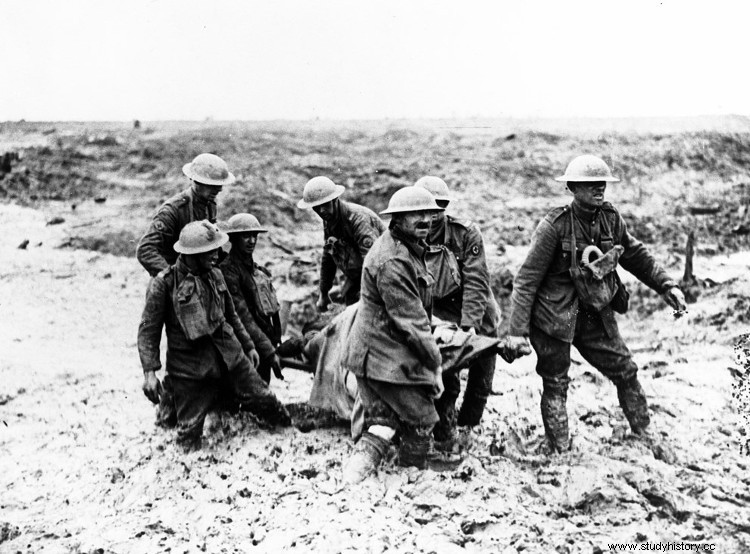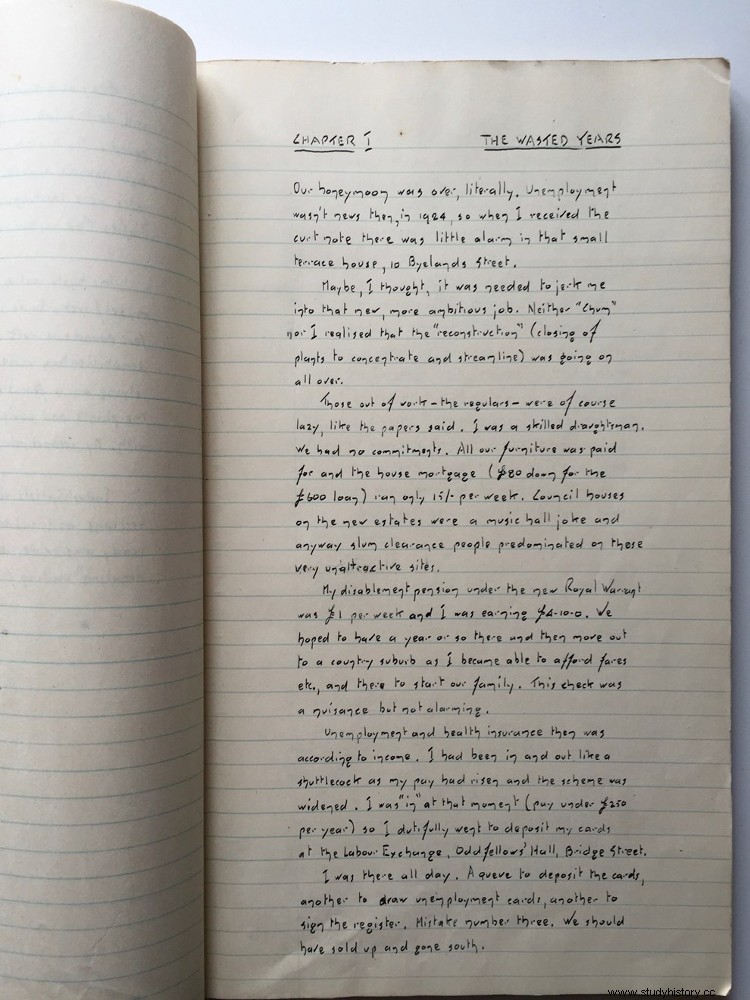Diaries and letters from the soldiers at the front They constitute a first-hand testimony of how they see things in an environment where the stage is formed, as Arturo Pérez-Reverte would say through the mouth of his best-known character, Captain Alatriste, by «mud, shit and blood». They are usually impressive, emotional, heartbreaking texts, which sometimes allow us to discover small or modest individual stories that might otherwise go unnoticed.
These days commemorate the centenary of the Battle of the Somme (July 1, 1916), one of the bloodiest of the First World War and in which more than a million men, British, French and Germans, lost their lives. There was, and survived, Wilfred Whitfield , author of a book entitled Wasted effort (Useless effort ), in which he describes, among other things, the daily horror of life in the trenches, the harshness of the fighting, the courage of anonymous heroes or the cold and inhuman rigidity of orders; He had the opportunity to experience the latter in person when he was sanctioned for returning to his lines without the regulation coat after four days surviving wounded in no man's land.
After the armistice, Whitfield returned with his companions to Great Britain to find an unexpected and unpleasant reality :everyone seemed to want to forget about the hardships of the conflict and, consequently, not only did nobody welcome them, but there was also no work for the discharged soldiers; especially if they were mutilated, as he was (he lost his left arm on the Somme). Closed doors and ungrateful oblivion was the balance of his effort to defend the country , similar to what would happen more than half a century later to many US Marines returning from Vietnam.

The situation became even worse because not long after the war, starting in 1929, the Great Depression hit. and all those who had not managed to reestablish themselves were doomed to a new misfortune, bordering on misery. As expected, many of them were crippled and they had it harder for obvious reasons. This dramatic situation led Whitfield and other comrades to unite to found the BLESMA (British Limbless Ex-Servicemen's Association), translatable as Association of Crippled British Ex-military and whose mission was to provide coverage to veterans who had lost a limb (arm, leg, eye...) or, at least, its use.

The BLESMA offered them social assistance, medical treatment and professional reinsertion, in addition to developing public awareness campaigns. Whitfield played a key role in the creation of the association , contributing their grain of sand to help those people, whose number amounted to no less than forty thousand, and getting one in ten to get a job. In fact, BLESMA still works today .
Whitfield passed away in 1958 at the age of sixty-two. Recently, his relatives decided to publish his diaries from the front, which had been stored in an attic of his house in Middlesborough because the author of it never thought they might be of interest, seen what was seen. The commemoration of the centenary of the battle, which in Great Britain is being celebrated with solemnity, has prompted the public to show the work so that they know what an everyday hero was like. .
Because that soldier who fought to restore the dignity of his comrades-in-arms well deserved the adjective heroic , considering that he did not have to have lost his arm; Whitfield attempted to volunteer enlist. several times and he was rejected one after another because he did not have the minimum height or weight, until the enormous losses suffered forced the authorities to open their hands and finally he was able to join the ranks . An everyday hero, he said before, and also flesh and blood.
More information and photos:BLESMA
